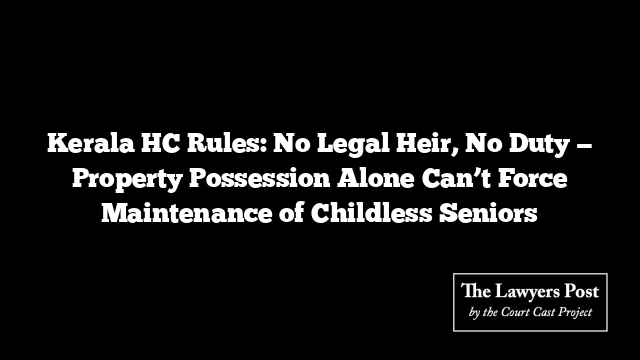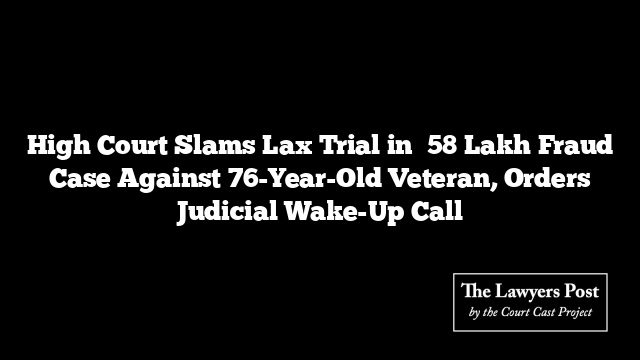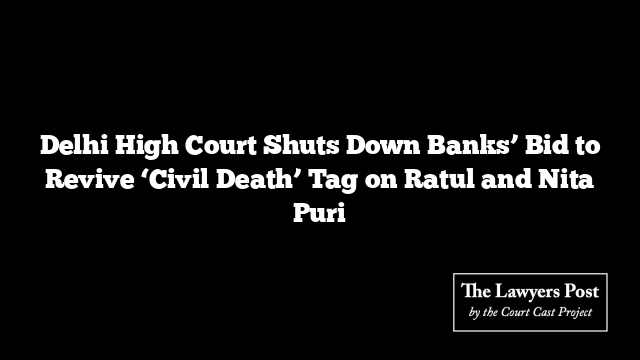In a clear-cut interpretation of the Maintenance and Welfare of Parents and Senior Citizens Act, 2007, the Kerala High Court has ruled that only legal heirs—not just anyone holding a senior citizen’s property—are bound to maintain a childless elder.
A Division Bench underscored that merely inheriting or occupying a senior citizen’s property does not create a maintenance obligation unless the person also qualifies as a legal heir under the applicable personal law.
The case stemmed from a dispute between a childless senior woman and her late nephew’s wife. The property had been gifted to the nephew decades earlier, and after his death, passed to his spouse. The senior citizen argued that her possession of the property made her liable to provide maintenance.
Lower authorities and even a single-judge bench had sided with the senior citizen, interpreting the law to mean that anyone in possession—or likely to inherit—must take on the duty.
However, the Division Bench dismantled that reading, pointing out four statutory conditions for liability: the senior must be childless, the person must be a legal heir under personal law, must be an adult, and must be in possession of or entitled to inherit the property.
Since the appellant was not a legal heir under the Indian Succession Act—her ownership arose solely from inheriting her husband’s estate—the Court ruled she fell outside the definition of “relative” under Section 2(g).
The appeal was allowed, the earlier decision overturned, and the Court noted the senior citizen could still seek other remedies available under law for any breach of the original gift deed’s conditions.





